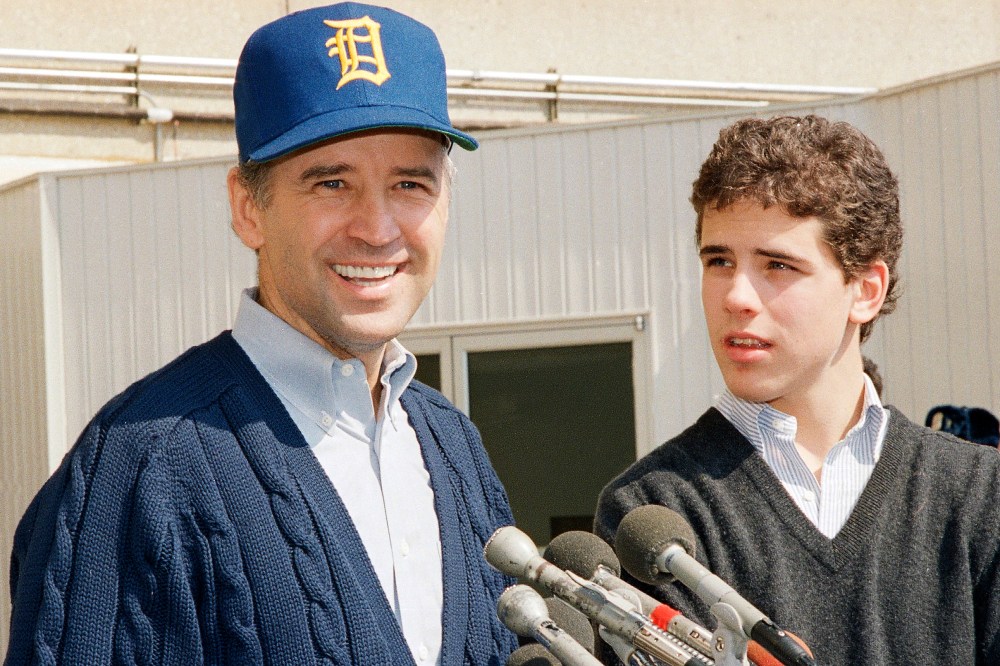After Hunter Biden was found guilty Tuesday on two counts of falsely claiming he wasn’t a drug user when he purchased a gun and one count of illegally possessing a gun while using a narcotic, he issued a statement that said, in part, “Recovery is possible by the grace of God, and I am blessed to experience that gift one day at a time.” President Joe Biden separately issued a statement in support of his son, and what touched me most about it was his focus not on where Hunter Biden was in 2018, when he committed those crimes, but where he is now. As he eloquently put it: “So many families who have had loved ones battle addiction understand the feeling of pride seeing someone you love come out the other side and be so strong and resilient in recovery.”
I have known many Hunter Bidens in my lifetime. I was a Hunter Biden.
I have known many Hunter Bidens in my lifetime. I was a Hunter Biden. And I have been blessed to have a father who stood by me the same way Hunter Biden’s father has stood by him.
I was introduced to cocaine in 1981 in a dorm room at Howard University, the mecca of higher learning, and I did not stop using it until my last prison bid ended in 2000. I used it and sold it, all at the same time. I often tell people I went to the other Howard University, the one Ta-Nehisi Coates barely mentions in his widely acclaimed book “Between the World and Me.” When I was on campus, there was an invisible subculture fueled by a fascination with cocaine. It was accepted until it wasn’t.
I dropped out of college to sell drugs full time. Not even the murder of one of my closest friends, who was robbed of his supply in a Northwest D.C. apartment, shot seven times in the face with a .357 and then electrocuted in bathtub, gave me pause. I was not deterred when 10 men kicked in the door, pointed guns at me and my friend and robbed us of $15,000 in a run-down apartment in Miami. The lies I told my father — fictional stories of who I thought he wanted me to be — only complicated our relationship.
The truth is I stayed in denial even after I was convicted of three felony counts of theft and served 18 months in Fairfax County, Virginia. At that sentencing, my dad came from Birmingham to let me know he had not given up on me. In return, I promised I’d never be placed in a cell again. I knew he was terribly disappointed. I also knew he wanted to believe every lie I told him.
It wasn’t until years later, when I was sitting in a jail cell in Montgomery County, Maryland, facing nearly 15 years, did I even think about trying to change. Cocaine had that much of a hold on my life.
My father, a well-respected high school educator, was a mentor to so many students. Even after they were out of school, he helped them get jobs and negotiate a post-segregated Birmingham. I was always Mr. Horton’s son. His former students would always tell me the high regard in which they held my dad, a proud, stoic man who cared so much about people. Yet, he could not save his own son from a path of drugs, destruction and damn near death.

Neither could Joe Biden, who even before he was president was one of the most well-positioned and influential men in the country. In 2022, Fox News seized upon a voicemail that the father left for his son in 2018: “It’s Dad. I’m calling to tell you I love you. I love you more than the whole world, pal. You gotta get some help. I don’t know what to do. I know you don’t either.”
Like Hunter Biden, I’ve heard such expressions of love from my dad. I know how hearing words like that can eat at you when you are in that invisible void of chaos that is drug addiction. But even if the power of drugs is formidable, the true love of a dad can be the foghorn out of the darkness.
While awaiting trial on four felony counts of theft in Maryland, I didn’t initially call my father. Because I’d let him down, again. Eventually, I was transferred to a special unit called Jail Addiction Services and placed in a group where we were required to write about the heartache we’d caused those closest to us. After writing about my dad in one of those sessions, I called him to let him know I had failed. But despite his obvious disappointment, he told me he loved me.












